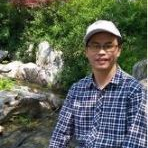Advanced Symmetry Methods for Dynamics, Control, Optimization and Applications in 2023
A special issue of Symmetry (ISSN 2073-8994). This special issue belongs to the section "Mathematics".
Deadline for manuscript submissions: 31 May 2024 | Viewed by 4536
Special Issue Editors
Interests: stochastic control; stochastic systems; stochastic stability; stochastic delayed systems; markovian jump systems; stochastic complex networks
Special Issues, Collections and Topics in MDPI journals
Interests: differential inclusions; neural networks; mathematical biology and stability analysis of dynamic systems
Special Issues, Collections and Topics in MDPI journals
Interests: the stability of discontinuous systems and applications to the neural networks
Special Issues, Collections and Topics in MDPI journals
Special Issue Information
Dear Colleagues,
Symmetry is pleased to introduce a Special Issue on the theories and applications related to symmetry/asymmetry. The aim of this Special Issue is to highlight papers that address the dynamics, control, optimization, and applications of nonlinear systems. This has recently become an increasingly popular subject, with an impressive growth concerning applications in engineering, economics, biology, and medicine, and can be considered a veritable contribution to the literature. Original papers that share this objective are especially welcome.
Prof. Dr. Quanxin Zhu
Dr. Zuowei Cai
Dr. Fanchao Kong
Guest Editors
Manuscript Submission Information
Manuscripts should be submitted online at www.mdpi.com by registering and logging in to this website. Once you are registered, click here to go to the submission form. Manuscripts can be submitted until the deadline. All submissions that pass pre-check are peer-reviewed. Accepted papers will be published continuously in the journal (as soon as accepted) and will be listed together on the special issue website. Research articles, review articles as well as short communications are invited. For planned papers, a title and short abstract (about 100 words) can be sent to the Editorial Office for announcement on this website.
Submitted manuscripts should not have been published previously, nor be under consideration for publication elsewhere (except conference proceedings papers). All manuscripts are thoroughly refereed through a single-blind peer-review process. A guide for authors and other relevant information for submission of manuscripts is available on the Instructions for Authors page. Symmetry is an international peer-reviewed open access monthly journal published by MDPI.
Please visit the Instructions for Authors page before submitting a manuscript. The Article Processing Charge (APC) for publication in this open access journal is 2400 CHF (Swiss Francs). Submitted papers should be well formatted and use good English. Authors may use MDPI's English editing service prior to publication or during author revisions.
Keywords
- symmetry/asymmetry phenomena
- symmetry dynamics
- symmetry and differential equations
- stability and stabilization
- synchronization
- symmetry optimization






